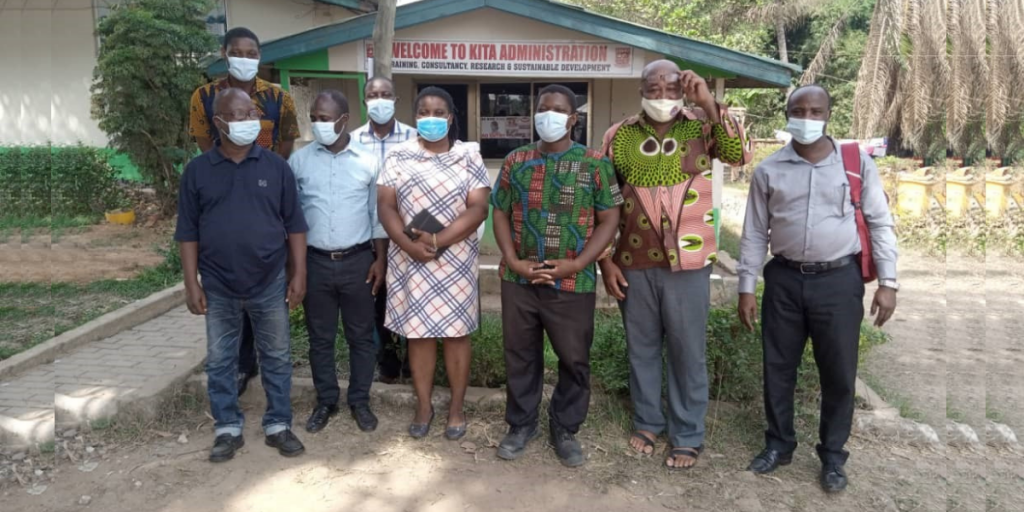Establishing new research collaborations within Ghana

After his 2018 Lancaster University residency, Dr Ebenezer Annan-Afful returned to his role as Senior Research Scientist at CSIR-Crops Research Institute in Kumasi, Ghana with a renewed vigour to develop new research collaborations back home. The RECIRCULATE project supported him in putting his ideas into action.
After the 2018 RECIRCULATE residency, Ebenezer shared:
“An integral outcome of my residency at Lancaster University was the knowledge I gained in the use of data collection equipment such as the porometer, thermal camera and tensiometer which I am now applying in ongoing research. Another major objective of my residency at LU was to build partnerships that would last beyond the life of the RECIRCULATE project. I was exposed to several collaborators and partners, chief among them being the UK Irrigation Association and the UK Controlled Environment Group. To put the experience gained to good use, I have started reaching out to several potential collaborators to develop proposals for future funding.”
Ebenezer developed a plan aimed at “Strengthening partnerships between the CSIR-Crops Research Institute, the Faculty of Agriculture and the Department of Biosystems and Agricultural Engineering of the Kwame Nkrumah University of Science and Technology (KNUST)”, to address the need to build collaboration and partnership between institutions in research and academia. The objective of the planned activity was to bring together relevant academic and research staff from both organisations in a round table dialogue to chart a path for future collaboration, partnership and networking. This activity was carried out through the organisation of seminars and workshops, aiming to create a common platform to exchange ideas and develop strategies to mitigate common challenges.
The programme began with a meeting organised with the Director of CSIR-Crops Research Institute, the Heads of Division and other selected staff from the Institute. This meeting served as a way of disseminating previous findings, through presentations made to introduce the project and solicit input from participants, and to encourage the buy-in of stakeholders in the project activities.
A meeting was then held with the Director and staff of KITA (The Institute of Tropical Agriculture, Kumasi) Agricultural College, an organisation at the forefront of professional, tertiary, technical and vocational agricultural training. The meeting identified an opportunity to collaborate on technology dissemination with CSIR-CRI, especially irrigation technologies developed in the RECIRCULATE project in Work Package 3, such as AWD (alternate wetting and drying) and PRD (partial root zone drying).
To further build this potential for collaboration with relevant stakeholders, a workshop was organised between CSIR-CRI staff involved in the RECIRCULATE project and selected faculty members of KNUST. The outcome of this short programme is the beginning of fostering closer collaboration between institutes, universities and other relevant stakeholders who have previously been working towards ideas and technologies designed towards the achievement of food security in Ghana and West Africa, largely independently of each other.
The next steps for the activity will be to co-develop proposals around technology dissemination, irrigation and nutrient management for crop production. This will involve further engagement with stakeholders and conducting frequent face-to-face meetings to explore even more collaborative opportunities.
